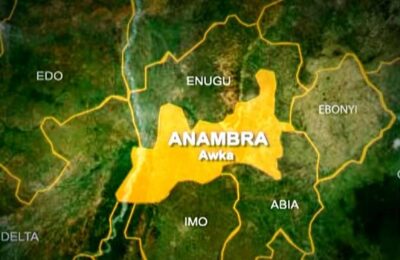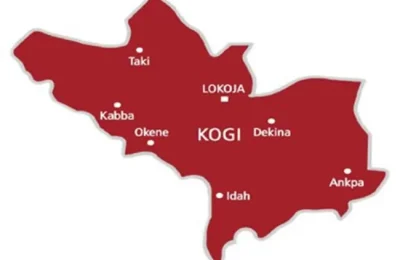
The Nigeria Red Cross Society has intensified its response to the ongoing mpox outbreak, mobilising volunteers and resources to support affected communities.
The President of the Nigeria Red Cross Society, Prince Oluyemisi Adeaga, during an interview with journalists at the opening of the mpox training of trainer in Abuja, the society is leaving no stone unturned in its efforts to combat the mpox outbreak.

The training of training of trainer was organised by the Nigerian Red Cross and Norwegian Red Cross in collaboration with Nigeria Centre for Disease Control
Adeaga also said, “Our volunteers are working tirelessly to educate the public on mpox prevention and control measures, and we are collaborating closely with public authorities and healthcare professionals to ensure a coordinated response.”
“Volunteers have been deployed to vulnerable areas to conduct community outreach and sensitization programs, promote disease prevention, and provide essential supplies and equipment to healthcare facilities.”
He also reiterated that Nigeria Red Cross Society has a significant presence in all local governments, with over 800,000 members across the country.
“The organization is leveraging its extensive network to rapidly respond to emerging health challenges.”
“The Red Cross is collaborating with public authorities, healthcare professionals, and other stakeholders to bridge gaps in disease control and mitigation.”
“Training programs are being conducted to equip volunteers with the necessary skills to address emerging health challenges.”
Similarly, the country manager for Norwegian Red Cross, Nigeria Country Office, Maurice Monson, explained that the organisation have been in Nigeria for quite some time focusing on community health and finance development, supporting the national society to play the auxiliary role to the government of Nigeria.
He also disclosed that one of the elements that Red Cross is strongly looking at is disease outbreaks, that is, supporting the national society to be prepared for effective response. So, for instance, we now have M-POX.
“Before M-POX, there has been some outbreaks such as measles, the terror, Lassa fever and meningitis.
“Our role there is to support with funds, available funds, being that it is in line with our mandate to ensure that the national society is well equipped to reach out to the state government, to the federal government and whosoever that is playing a key role in responding to the outbreak. So that is why we have been here to support the process.”
He added that the workshop starts as the orientation phase of the implementation, optimistic that it will move forward to the respective states, that have the M-POX at a very zero level, that it does not become any threat to the Nigerian society any longer.
“Our role in this response is through the national society. With the national society, we will be able to reach out to the Nigerian CDC.”
“We are also in touch with WHO. We are also in touch with the state primary health care development agencies.”
We are using the already available platform for surveillance and reporting of data, so that we capture all the relevant information regarding the number of suspected cases, number of confirmed cases and if there is any reported death.”
Meanwhile, the Nigeria Centre for Disease Control and Prevention(NCDC), Mpox Incident Manager, Odhnosen Ehiakhamen, said the Centre has swiftly escalated its Incident Management System and established a multi-sector, multidisciplinary coordination for the Monkeypox response, following the World Health Organization’s (WHO) declaration.
“We have held over 90 conferences across 35 states and the Federal Capital Territory to improve healthcare workers’ capacity for prompt response.
“Our partnerships with the Red Cross, WHO African CDC, Breakthrough Action, and others support the response through the federal ministries of health, Greek, and environment.”
He also said, the National Primary Health Care Development Agency collaborates with the NCDC on vaccination efforts, providing 10,000 visits, with plans to target high-risk states.
“Vaccination is expected to commence in select states within days. The agency is also working with the National Association of Dermatologists and the Infectious Disease Society to support case management.”
“Community surveillance and health facilities play a vital role in identifying cases. To further enhance response capabilities, regional trainings will be conducted to complete training for remaining states, emphasizing community engagement and surveillance through the Red Cross.”
“As of today, Nigeria has reported 94 confirmed cases from 25 states and the FCT, with Cross River state having the highest number of cases. A team has been deployed to support outbreak response in the state.”
Ehiakhamen emphasised, “We remain focused on enhancing capacity, surveillance, and community engagement to mitigate the impact of Monkeypox in Nigeria.” Immunisation is expected to commence soon, with the Mpox vaccine rollout anticipated to start within days.
Ehiakhamen urged Nigerians to remain vigilant and report any suspected cases to the nearest health facility. “Early detection and reporting are crucial in controlling the spread of Monkeypox,” he stressed.







